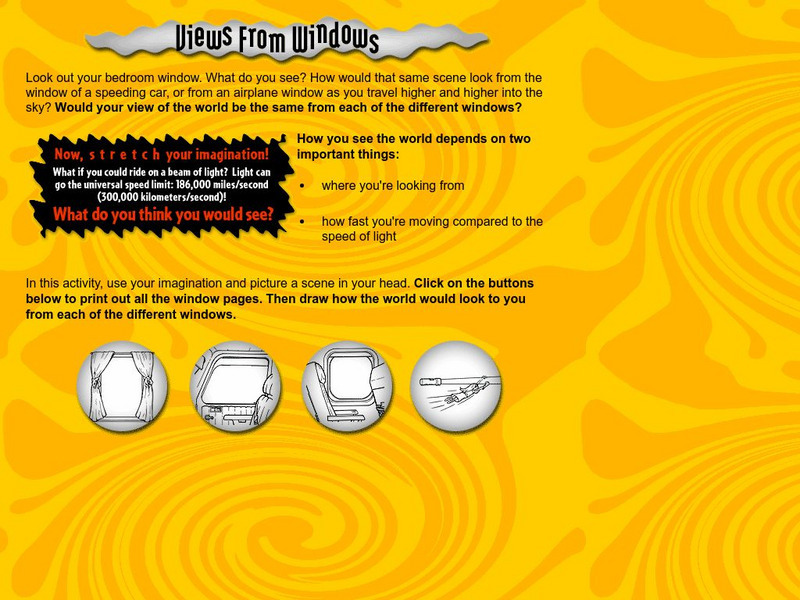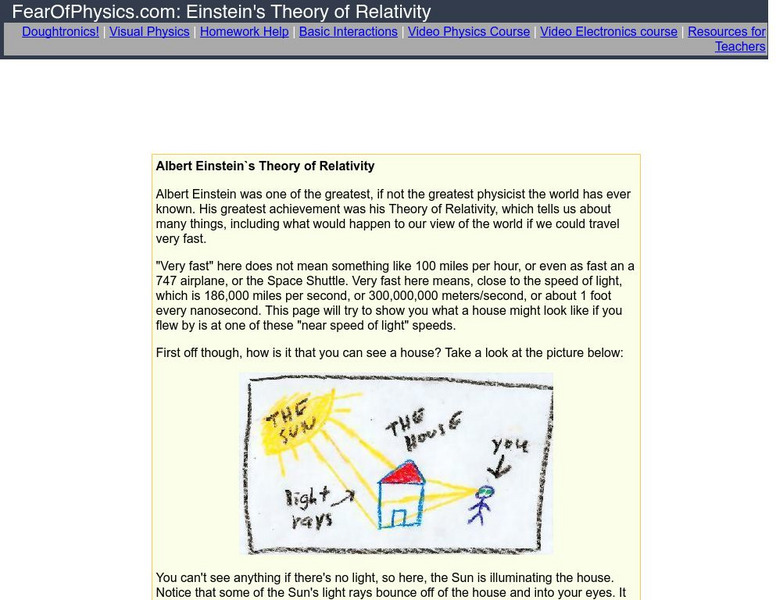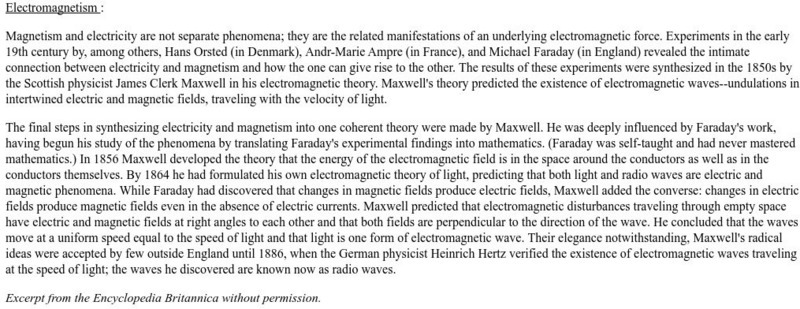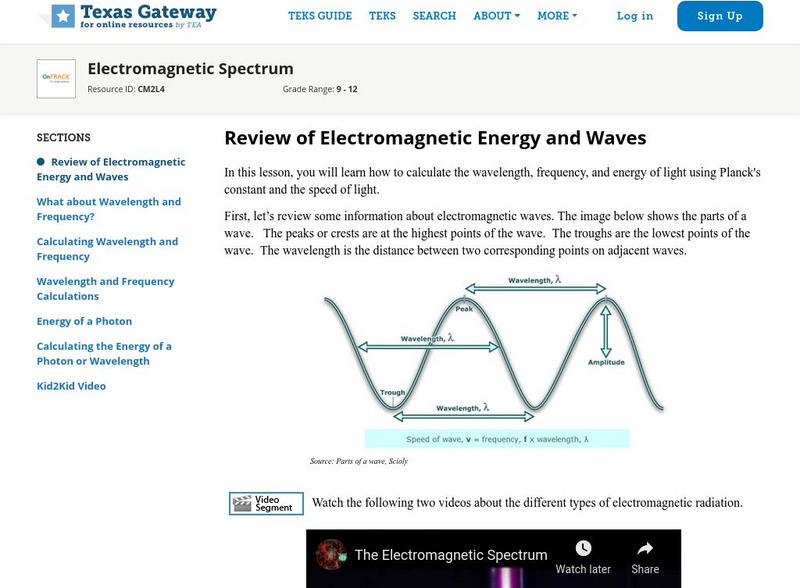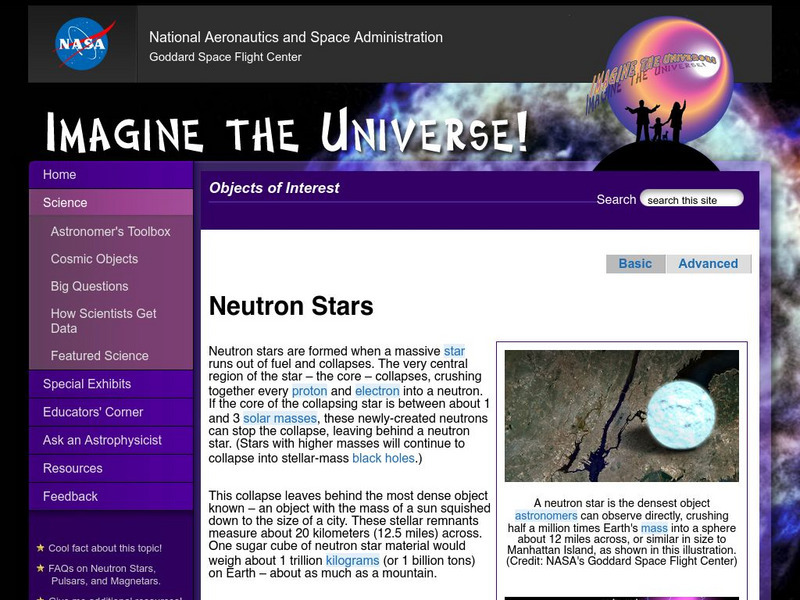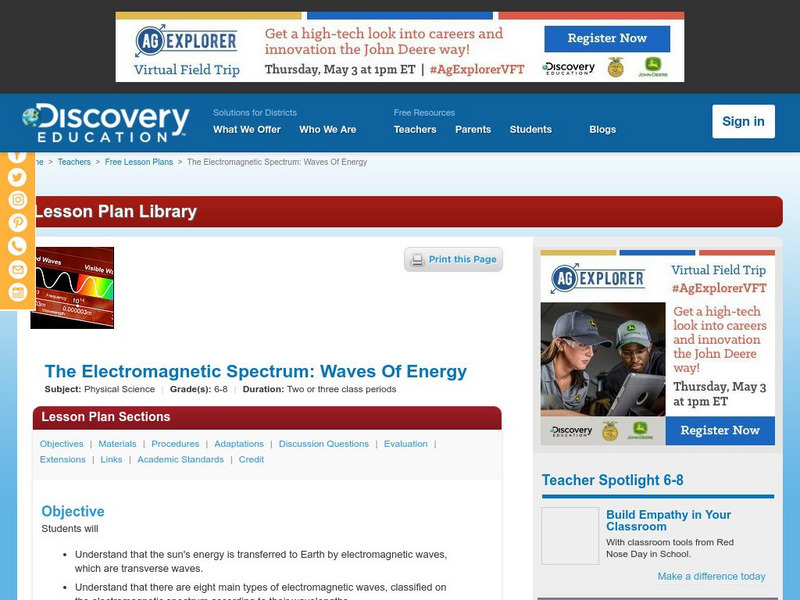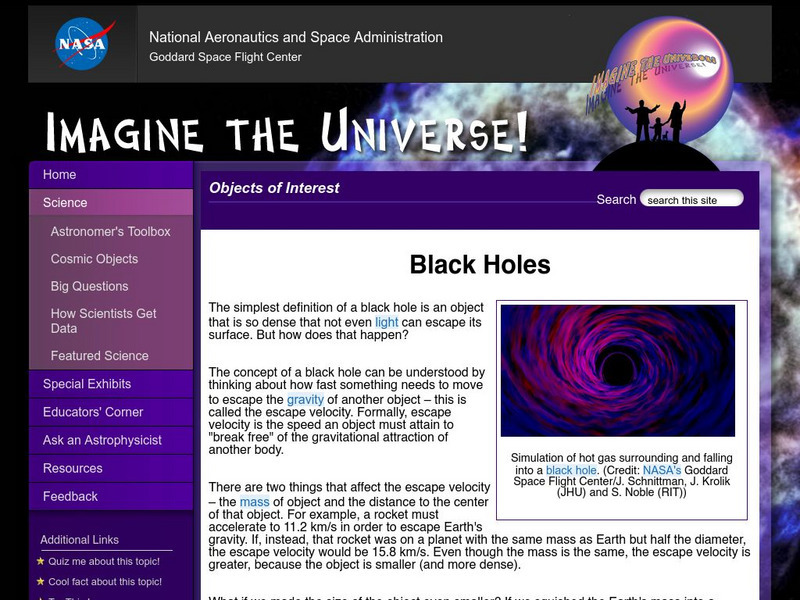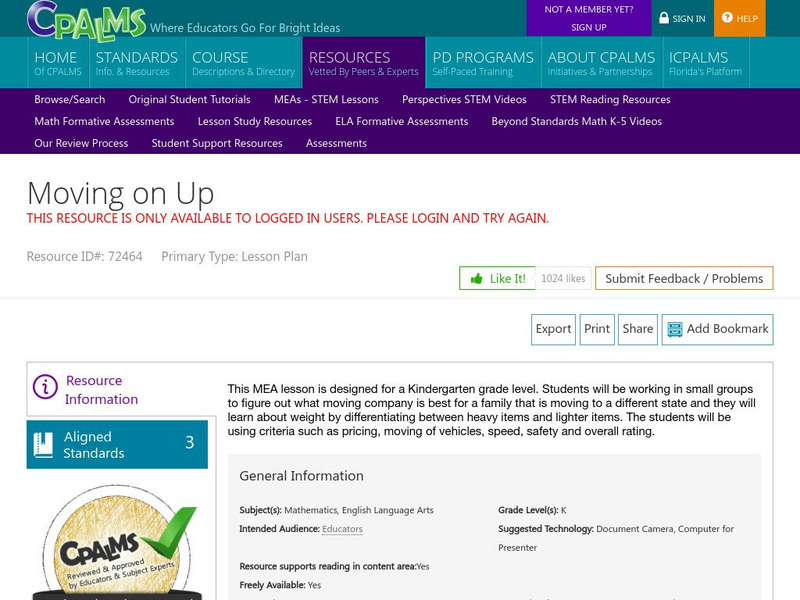Wolfram Research
Wolfram Science World: Maxwell, James
This ScienceWorld site describes the Scottish mathematician and physicist James Maxwell (1831-1879) who published physical and mathematical theories of the electromagnetic field.
American Museum of Natural History
American Museum of Natural History: O Logy: Stuff to Do: Views From Windows
Instructions that take you through an Einstein-like thought experiment by having you imagine and record what you see when stationary and when moving at the speed of light.
CK-12 Foundation
Ck 12: Physics: Wave Optics Study Guide
A study guide for concepts related to wave optics.
PBS
Pbs Learning Media: Diamonds: The Science Behind the Sparkle
This illustrated essay from the NOVA Web site explains why the atomic structure of a diamond slows down light and produces a sparkle more brilliant than from any other colorless substance.
TeachEngineering
Teach Engineering: When Silicon Talks
In this activity, students tackle this aspect of engineering as they solve problems for precise angles and speeds, and predict data output when samples are altered.
Other
Fear of Physics: Albert Einstein's Theory of Relativity
Fear of Physics uses animations and simple language to teach the theory of relativity.
PBS
Pbs Teachers: Math Space Odyssey: How Long Is a Light Year?
This lesson plan helps students to demonstrate the ability to use a light year as a standard of measurement to calculate time and distance from the earth. They will also solve problems based on light years.
University of Oregon
University of Oregon: Electromagnetism
A solid summary from the University of Oregon of the work of James Maxwell Clerk, Michael Faraday, and others in the field of electric and magnetic phenomena. This is a fine essay.
Trinity College Dublin
The History of Mathematics: Roemer
A short biographical sketch of the life and work of Ole Roemer (1652-1719 CE). Identifies his scientific discoveries and contributions in astronomy.
PBS
Pbs Learning Media: Einstein: How Smart Was He?
This essay from the NOVA Web site explores the impact Einstein made on physics and most everything we know about the cosmos.
Science Struck
Science Struck: Kinetic Energy Formula
Explains what is meant by kinetic energy and demonstrates how to use the formulas for a point mass moving at less than the speed of light, for rotational motion, and for a mass moving at a relativistic speed. Includes interactive...
Texas Education Agency
Texas Gateway: Electromagnetic Spectrum
This tutorial explores using Planck's constant and the speed of light to calculate the wavelength, frequency, and energy of light.
TED Talks
Ted: Ted Ed: Sunlight Is Way Older Than You Think
It takes light a zippy eight minutes to reach Earth from the surface of the Sun. But how long does it take that same light to travel from the Sun's core to its surface? Oddly enough, the answer is many thousands of years. Sten Odenwald...
Physics Aviary
Physics Aviary: Wavelength Lab
This lab is designed to have students investigate the relationship between the speed of a wave, the frequency of the wave and the wavelength of the wave. Students can vary wave speed and frequency. Each of these should be varied while...
NASA
Nasa: Imagine the Universe: Neutron Stars and Pulsars
Discover what neutron stars and pulsars are and view pictures of them. Includes links to additional resources and lesson plans.
Ducksters
Ducksters: Physics for Kids: Light
Kids learn about the science of light. Energy made of waves and particles called photons traveling at the top speed in the universe. What is refraction? The difference between transparent, translucent, and opaque.
Wolfram Research
Wolfram Science World: Roemer, Olaf
This ScienceWorld site provides a biographical sketch of Olaf Roemer and describes his most notable scientific discoveries such as the first good estimate of the speed of light.
Discovery Education
Discovery Education: The Em Spectrum: Waves of Energy
Students are introduced to the electromagnetic spectrum through this group research activity. Each group investigates a different wavelength range within the em spectrum and reports back to class. Discussion ideas also included.
NASA
Nasa: Imagine the Universe: Black Holes
Learn what black holes are and the myths that surround them.
TED Talks
Ted: Ted Ed: Praseodymium: Periodic Table of Videos
The team at Periodicvideos has created a TED-Ed Lesson for every element of the periodic table. This one is about praseodymium, an element used to filter harmful light. Praseodymium has even helped slow light's speed down to a mere 300...
NASA
Nasa: Imagine the Universe: "Nasa Detects One of Closest"
Site provides the article, "NASA Detects One Of Closest And Brightest Gamma Ray Bursts." Provides links to learn more about gamma rays and black holes as well as other resources.
CPALMS
Moving on Up
[Free Registration/Login Required] During this MEA simulation, kindergarten students will be preparing for a move to another state. Students must work in cooperative groups as they determine which moving company will be the best for...
PBS
Pbs Learning Media: Think Like Einstein
This interactive activity from the NOVA Web site challenges you to think like Einstein and understand how time travel might be possible.
Stanford University
Stanford Univ/gravity Probe B/relativity Q&a
Click "Relativity Q & A". Over 200 questions and answers dealing with relativity (special and general), answered by NASA scientist Dr. Sten Odenwald. Answers are generally one paragraph, very clear and coherent.
Other popular searches
- Einstein Speed of Light
- Calculating Speed of Light
- Calculate Speed of Light
- Traveling Speed of Light
- Science, Speed of Light
- The Speed of Light
- Science Speed of Light
- Calculating the Speed of Light
- Science\, Speed of Light

